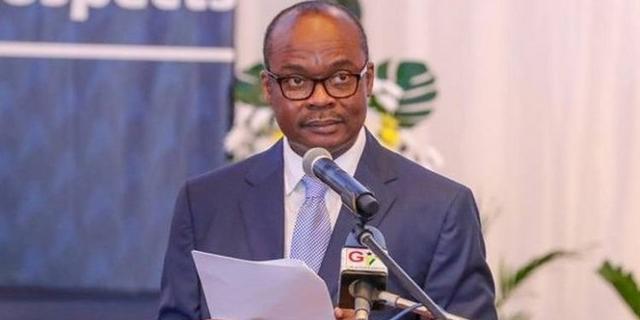The Bank of Ghana (BoG) has said the 2022 economic outlook is positive but warns of uncertainties surrounding food prices and petroleum price adjustments, which are likely to exert inflationary pressures.
Speaking at the 2021 Annual Bankers Week Dinner of the Chartered Institute of Bankers, Governor of BoG, Dr Ernest Addison, said the country had made a steady economic recovery from the pandemic effects since the last quarter of 2020.
Dr Addison said there was a fiscal risk from a significantly increased projection of government expenditure in 2022.
He said the market's assessment of the 2022 budget suggested lingering doubts about the ability of the revenue measures announced to translate into a large increase in domestic revenue.
READ ALSO: France commits €75m to support growth of Ghanaian businesses
“As a Market Access Country, we have a huge burden to demonstrate a strong recovery and to ensure that the bold revenue measures introduced yield the required results,” he said.
“We are at a point where there is no room for policy forbearance on all levels, otherwise, the huge financing burden could unravel the anchor and erode the gains we have made in the last four years,” Dr Addison added.
Dr Addison called for a social contract on fronts with common aspirations across the aisle to make sure we sustained the recovery momentum.
On the banking sector, Dr Addison called for a review of the “sluggish” boost to private sector credit growth despite the macro-prudential policy measures and regulatory reliefs implemented at the onset of the pandemic.
He said the higher lending rates at the banks as captured in the recently published Annual Percentage Rates (APRs) indicated that the average base rate charged small and medium enterprises on a one-year loan ranged between 19.5 per cent and 30.4 per cent at the end of September 2021.
“On all counts, these rates are very high and have proven inimical to private sector credit expansion that was expected from the regulatory reliefs, even considering the lingering uncertainties surrounding the pandemic,” he said.
On the digital economy, Dr Addison said efficient, convenient, and safe digital financial services were central to the digital economy and for ensuring a financially inclusive society.
He said a sustainable digital banking environment should be people-centred and urged that the banks’ resources and efforts should be guided by inclusive strategies that promoted the integrity of the payments ecosystem to build confidence in users.
These initiatives, in addition, to lessons provided by the pandemic, should provide the needed stimulus for developing a robust, resilient and inclusive digital financial service industry supportive of a digitised Ghanaian economy, he said.
Rev. Mrs Patricia Sappor, the President of the Chartered Institute of Bankers, implored banks to prioritise the recruitment of members of the institute as they were well-trained to inspire growth and good performance.
She further urged women to aspire for leadership roles in the banking sector to promote gender inclusiveness.
“I encourage my fellow women to be bold and aspire for these positions, to champion this agenda to fruition,” he said.
The week’s celebration was on the theme: “The Digital Economy of Ghana – The Strategic Role of the Banking Industry.”
--
GNA





